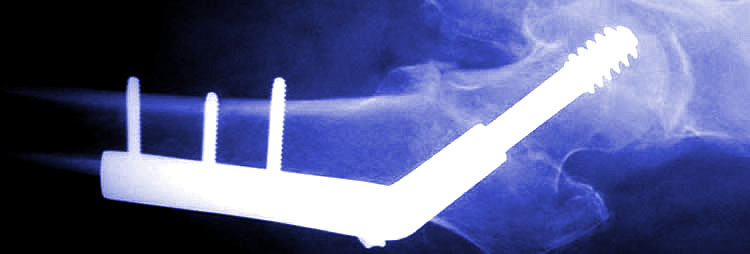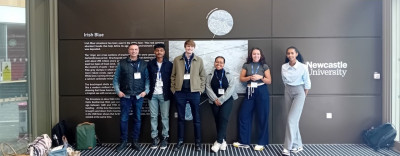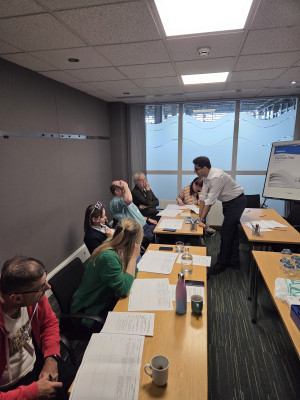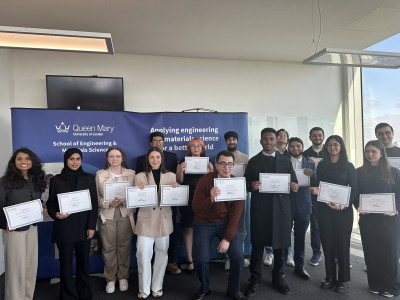Welcome to the School of Engineering and Materials Science
The School of Engineering and Materials Science provides outstanding degree programmes coupled with internationally leading research which is reflected in all our undergraduate programmes. Our taught postgraduate programmes are similarly first class and provide students with a fantastic opportunity to engage with cutting-edge research in: Bioengineering, Intelligent Transport, Sustainable Engineering and Engineering and Materials Education. Our extensive industrial connections provide graduates with excellent employability in stimulating and well-paid careers.
Events and Seminars
 Mon 28 Apr 2025 Mon 28 Apr 202512:45 - 19:00 | 8th Russell Binions Memorial PhD Symposium  |
 Fri 9 May 2025 Fri 9 May 202509:00 - 11:00 | Inclusive Commonwealth Learning for Education for Sustainability (INCLIDES) UK-India Community of Practice Launch |
 Wed 21 May 2025 Wed 21 May 202512:00 - 13:00 | Scholarship Exchange Webinar |
 Tue 27 May 2025 Tue 27 May 202510:30 - 16:00 | Proficiency-oriented assessment inventories in undergraduate mathematics |
 Wed 18 Jun 2025 Wed 18 Jun 202512:00 - 13:00 | Scholarship Exchange Webinar |
Recent publications
- Impact of vibration on Li-ion battery cooling: A system dynamics analysis and physical characterisation
Saeed A, Karimi N and Paul MC
International Journal of Thermal Sciences, Elsevier vol. 210
01-04-2025 - Data driven modelling approach for design assessment of spacecraft equipment
Yu C, Zhu Y-P, Luo H and Luo Z
Applied Mathematical Modelling, Elsevier vol. 140
01-04-2025 - Modeling, optimization, and control of a variable stiffness pneumatic rotary joint with soft-rigid hybrid twisting modules
Jiang Z and Zhang K
Mechanism and Machine Theory, Elsevier vol. 205
01-03-2025














